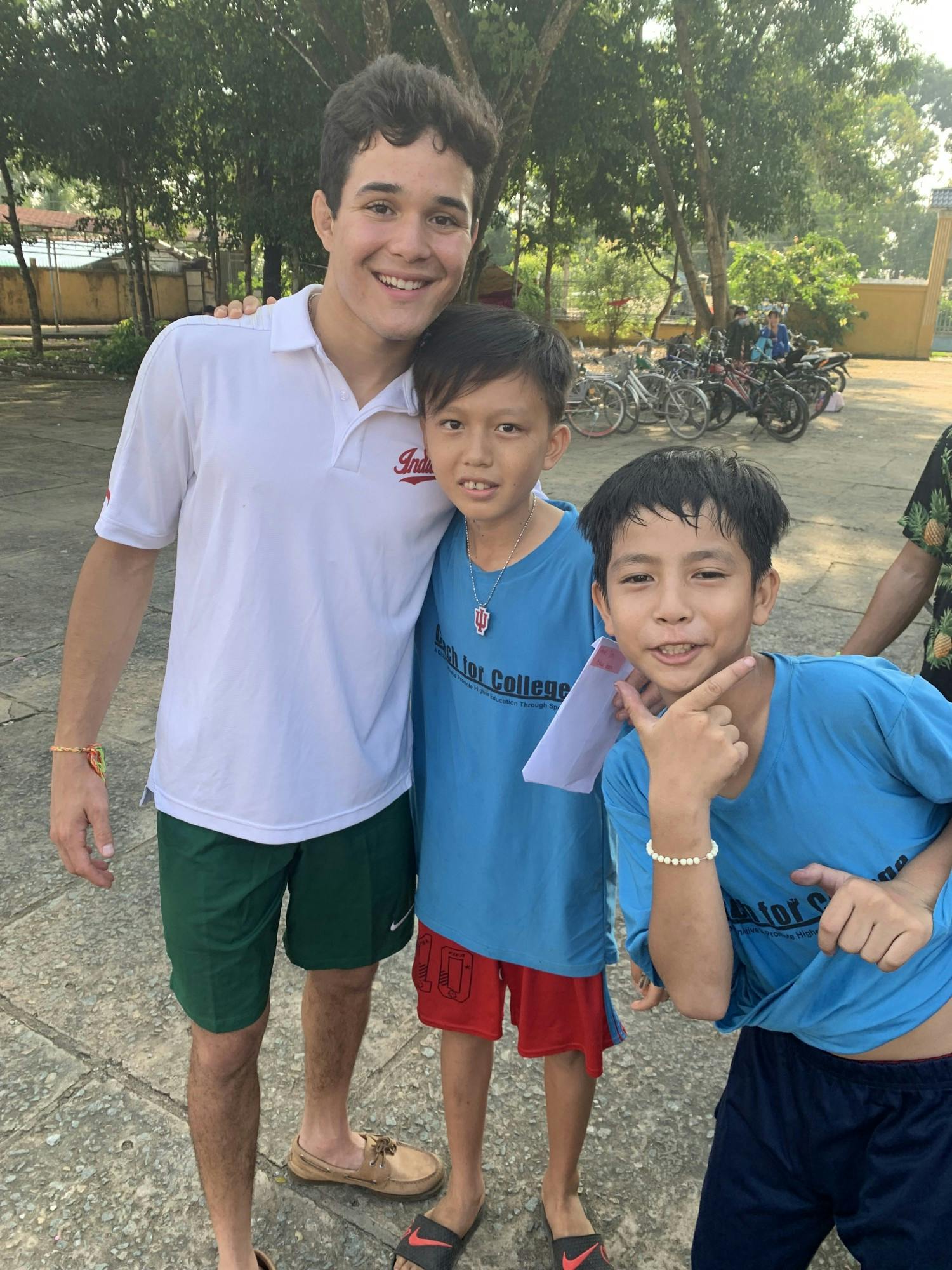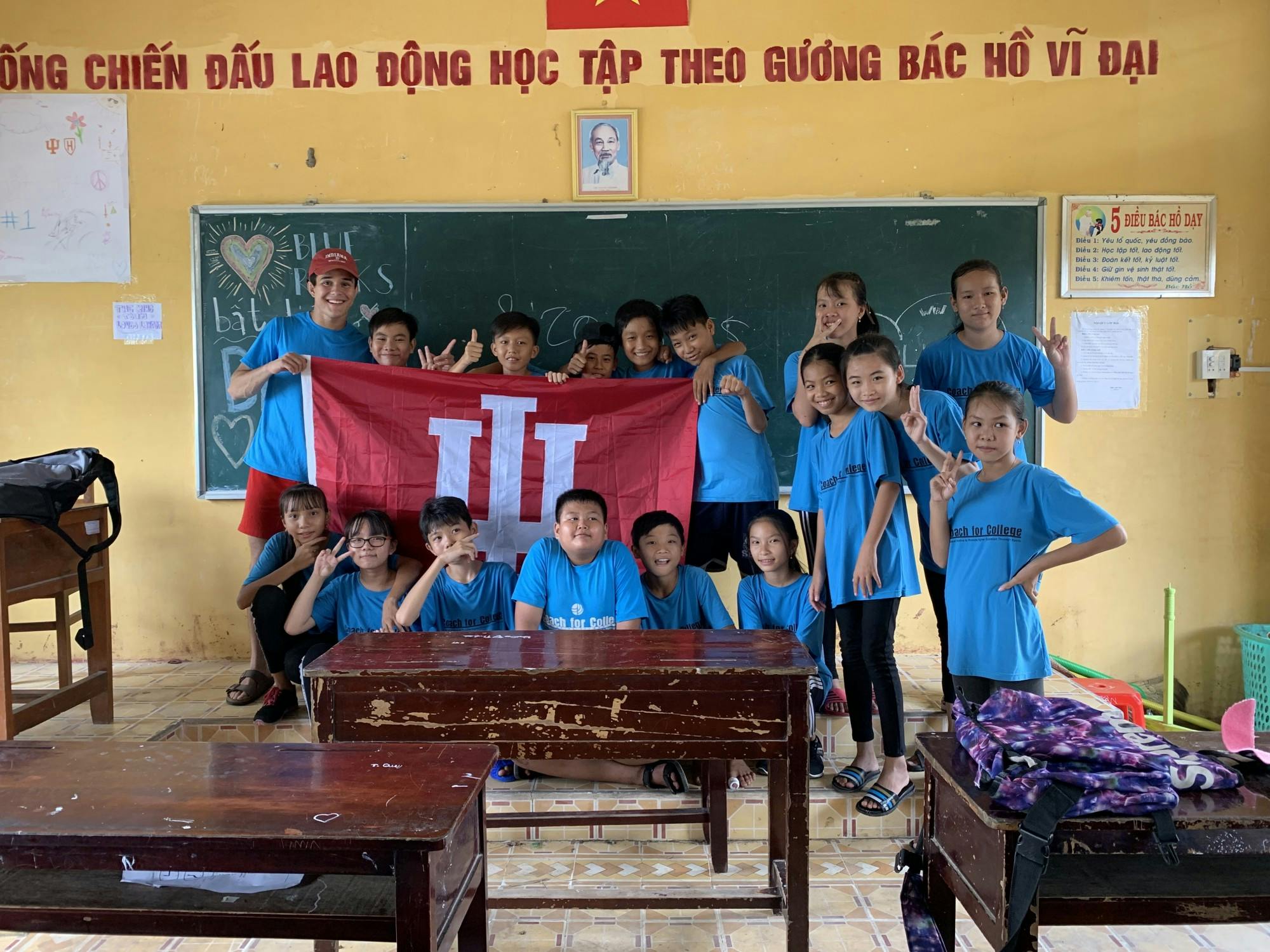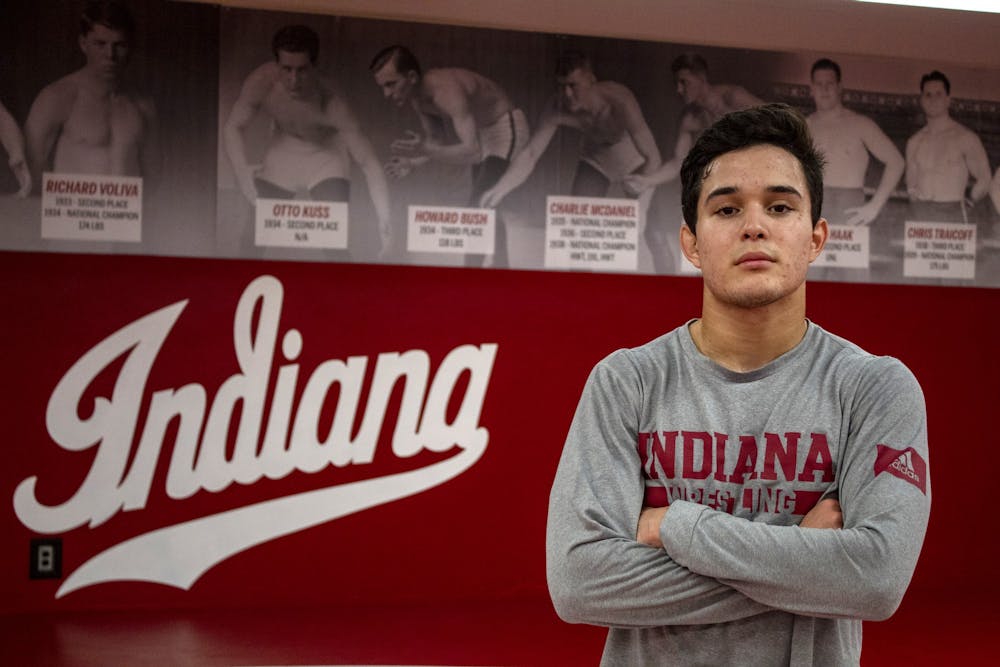Jonathan Moran didn’t know what to feel.
He was overwhelmed by the thoughts running through his head while he sat in the Tan Son Nhat International Airport in Saigon, Vietnam.
Everything in Moran’s mind was jumbled as he tried to make sense of the last three and a half weeks of his life. He tried, but he couldn’t put the pieces together. He struggled to comprehend what he had seen and experienced.
His mind went blank.
He had to find a way to organize his thoughts and acknowledge his feelings. He went into a store at the airport and purchased a journal.
Moran never recorded his feelings on paper, but the journal allowed him to express his emotions and release his anxiety. He could scribble anything in the notebook and recall his adventure.
Moran opened the book in the terminal and wrote. And wrote. He continued page after page. He didn’t write complete sentences, just fragments only he could put together.
As Moran wrote, his mind began to calm and his thoughts became clear again.
He started to understand what he had seen. Moran’s memories of the children, the scenery and the heat became vivid.
But, before he experienced a new culture, Moran started his journey three weeks earlier at Chicago O’Hare International Airport
Moran, a sophomore wrestler at IU, was accepted into the “Coach for Colleges” program, which sends collegiate athletes from around the country to impoverished areas in Vietnam to coach sports and educate local children in a school subject. Moran was introduced to it after his teammate Dillon Hoey went on the trip in 2018.

Moran also felt a desire to give back because of his humble beginnings. Early in his life, Moran lived in a middle-to-low income neighborhood in Chicago before he and his family moved out before Moran entered high school.
“A lot of my friends from back home don’t get to experience leaving that town,” Moran said.
He never thought wrestling would take him across the world.
“I’m so grateful that sports gave me this opportunity,” Moran said. “I feel blessed.”
The Portage, Indiana, native boarded his flight at O’Hare and knew where he was headed but not much else. He knew he would have a place to sleep, but he didn’t know where. He knew he would have food to eat, but he didn’t know what it would be.
“I was not going on vacation,” Moran said. “I was going to rural Vietnam to the poor countryside. I didn’t know how people were going to accept me, and I didn’t know how the Vietnamese people were going to react to Americans.”
Moran settled in for the 20-hour trip to Shanghai, China, and was met with a new world when he arrived.
The Shanghai Airport was the biggest he had ever seen. Hundreds of people hurried to their planes, many of them dressed in suits. Moran peered at the signs covered in Chinese, but he knew he couldn’t understand them.
Moran and his fellow athletes had to sprint to catch their connecting flight to the airport in Saigon.
It was the middle of the night when they finally arrived in Vietnam. The air smelled different to Moran, but he couldn’t describe it. As they drove to the hotel where they would be staying for two nights, Moran was in shock. His eyes were fastened to the window in the car.
He stared out the vehicle as it cut through the night. He saw people sleeping in the streets, block after block. The structures in the city were pushed up next to each other, and the paint on the houses was peeling and rusting away. There weren’t any walls on some of the buildings. It was just a tin roof and a floor.
Two days later Moran and his classmates arrived at their permanent residence. The rooms sat on each side of the long hallway that ran through the house.
Just a couple nights into the trip, Moran and the other athletes started to form a strong bond. They just sat in a room, talked and opened up to each other.
Then, Moran got into a weekly routine as the classes began, and he was immediately moved when he was introduced to his 6th and 7th grade students.
Moran saw the kids laughing and smiling, even though he knew they were struggling.
Moran would wake up at 6 a.m., have breakfast at 6:30 and get to the schoolhouse at 7:00. Moran taught English and coached baseball to 6th graders from 7-11 in the morning. Then, he had a lunch break – and every meal was the same: white rice, a fried egg and a protein. After, he went back to school and repeated the process with the 7th grade group. He spoke to the students through translators.
The kids loved Moran, and Moran loved them too.

The Vietnamese kids had never played baseball before, yet they were all smiling when Moran would step up to the plate and smash the wiffle ball into the atmosphere. When they heard that Moran wrestled, they tried to take him down.
After the school day, Moran and his co-workers would sit down, reflect and plan for the next day.
It was hot everyday. Like fry an egg on the pavement hot, 115 degrees hot, sweat as soon as you step outside hot. It would rain almost everyday. Sometimes Moran and the kids would sit outside during the downpours to cool down.
He specifically remembers his experiences on the third weekend, when he went to visit one of his students at home. In rural areas of Vietnam, households average $19 USD per capita per month.
Moran arrived at a house with a rice field behind the living space, and a stream that was used as a bathroom. The child’s grandmother was standing in the kitchen, slicing open coconuts when Moran entered. She offered them fresh coconut milk.
After Moran visited his student’s house, they set out into the city together.
The young child waved his arms frantically at the bicycle that sat on the road. The two didn’t speak the same language but were still able to communicate. Moran hopped onto the seat, and his friend climbed onto the back of the bike. Moran started to pedal, and his friend let out a sound of sheer joy. The young boy cheered and smiled.
Moran smiled too.
The joy wouldn’t last though. Moran learned that some kids will be forced to drop out of school to work and provide for their families.
“Camp for the kids was an escape from life,” Moran said. “But, they knew that once we leave they’ve got to go back to working on the rice farm and selling snails at the market or walking 45 minutes to school.”
Eventually, when it was time to leave, Moran felt a knot in his throat.
Moran hugged the children, and tears streamed down his cheeks. His students cried with him, the advisors cried with him. Moran still gets tears in his eyes when he talks about them now.
He loaded his belongings onto the bus to go back to the airport. As the vehicle rolled off, the kids put their hands on the windows as they sobbed. The image is ingrained in Moran’s head, and he can still see it clearly.
“It was the saddest moment of my life,” Moran said. “It is absolutely incredible how much of a connection that you can make with these kids, not even speaking the same language.”
Moran sat in the terminal of the Tan Son Nhat International Airport in Saigon and just wrote.
He journaled seven pages filled with his thoughts. With each turn of the lined paper, another chapter from his journey was uncovered.
The kids still motivate him everyday, and sometimes he receives Facebook messages from them. Moran can’t understand what the notes say, but he feels relieved that they are doing alright.
Moran and the other eight students still have a group chat and talk daily, even more than three months after the trip.
Moran’s homescreen on his iPhone is two school children from Vietnam sporting sunglasses and bandanas from a Snapchat filter. He’s reminded of his trip daily, and the kids won’t leave his heart.
After returning from his great journey to Vietnam, Moran feels ready for his sophomore year on the mat. Head Wrestling Coach Angel Escobedo spoke to Moran about his travels.
“Jonathan has always been a kid that is grateful,” Escobedo said. “But, I think that he came back with a different attitude. He’s really immersed in everything that we have to offer here and he’s taken advantage of it.”
Moran’s sophomore year is underway, and he’s currently vying for the starting spot in the 133 pound weight class. As time passed, as he sweated through practices, as he pushed himself in the weight room, he had the chance to understand what he saw, and what he experienced. The electronic digits on his iPhone will turn, but the screen and memories behind will last.
When Jonathan Moran was sitting in the airport he didn’t know what to feel.
Now, he does.
Gratitude.
CORRECTION: A previous version of this article and photo captions incorrectly stated Moran's year at IU. He is a sophomore. The IDS regrets this error.





